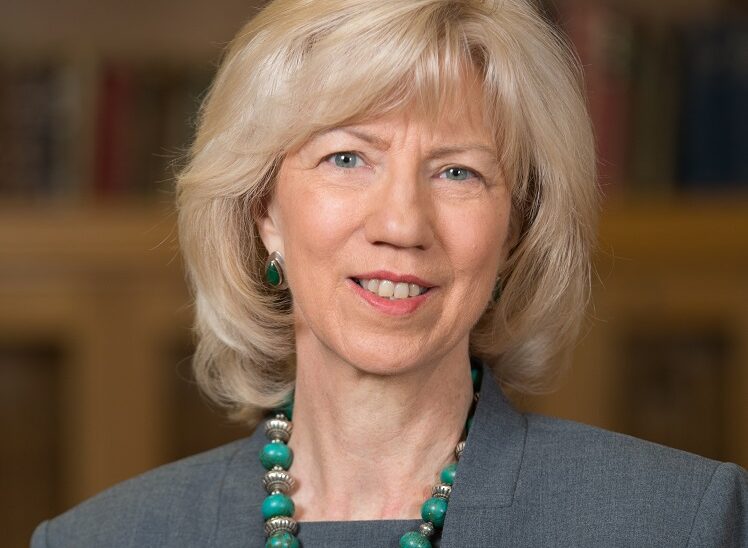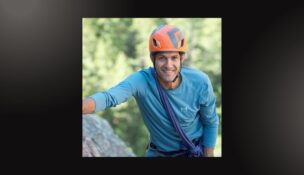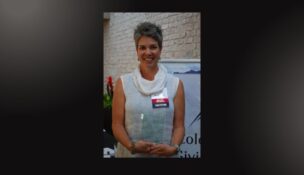6 Questions with Colorado Women’s Hall of Fame Inductee Gale Norton
The impact that Gale Norton has had on Colorado (and the country) can be seen all around you
Ali Longwell //April 17, 2020//


6 Questions with Colorado Women’s Hall of Fame Inductee Gale Norton
The impact that Gale Norton has had on Colorado (and the country) can be seen all around you
Ali Longwell //April 17, 2020//

This interview is one in a series of interviews with the 2020 Colorado Women’s Hall of Fame inductees. Each year, the Hall of Fame inducts a group of contemporary and historic women who have made enduring and exemplary contributions to their field while inspiring and elevating the status of women.
The impact that Gale Norton has had on Colorado (and the country) can be seen all around you. As the Colorado Attorney General she helped negotiate a $206 billion national tobacco settlement; won a court victory against the federal government to clean up the hazardous waste at Rocky Flats and the Rocky Mountain Arsenal. As Secretary of the U.S. Department of the Interior, she resolved a 70-year water dispute between Colorado and California and played a significant role in US energy policies..
Raised in Thornton, Norton’s career is marked by these milestones and many more historic titles, including the first female Colorado Attorney General and the first woman to be appointed as Secretary of the Interior.
ColoradoBiz sat down with Norton to discuss her career (including the moments she’s most proud of), get her advice for other career-oriented women and learn from her triumphs and challenges.
ColoradoBiz: To start, tell me a little about your background and your journey to starting your career.
Gale Norton: I grew up in Thornton and attended the University of Denver for undergraduate and law school. I was concerned about environmental issues from a young age. That interest spurred an awareness of politics and eventually led me into law school.
CB: What are the moments/people/movements that defined your career?
GN: There are two major forces that define my career and my passions in life. First is my love for the natural environment. Like most of us in Colorado, I am happiest when I’m in the mountains, admiring the breathtaking vistas.
My other passion is human freedom. I read Ayn Rand and studied free market economists like Milton Friedman and Friedrich Hayek. I believe in human ingenuity and individual responsibility. As someone who spent many years working in government, I know that government officials don’t have all the answers and poorly designed regulation can be counterproductive.
Environmentalism and free markets are sometimes seen as conflicting. I have spent much of my career seeking ways to reconcile them. For example, I did a post-doctoral fellowship at the Hoover Institution at Stanford researching emissions trading (now usually called cap-and-trade). Emissions trading is one way of using market mechanisms to improve air quality, achieving better results by encouraging innovation.
Similarly, when I was Secretary of the Interior, I promoted cooperative conservation. This approach brings together diverse local citizens to find common ground. There are many inspiring examples of successful efforts to solve local conservation problems by getting farmers and ranchers, environmentalists, recreationists and businesspeople to sit down and work together. Because they understand local circumstances, they can usually craft better solutions than someone sitting behind a desk in Washington, D.C.
CB: What were some of the ways that you found success?
GN: Managing hundreds of attorneys in the Attorney General’s office and over 75,000 employees in the Department of the Interior posed major challenges. In both cases, I needed to understand how to motivate employees, set clear goals and implement changes. Most importantly, I was able to bring together outstanding management teams. Working with talented people you enjoy makes a huge difference. They can energize you and help you accomplish your goals.
CB: What is your proudest achievement?
GN: Serving a successful term as Secretary of the Interior is my proudest achievement. My leadership team and I managed over 20% of the land area of the United States, a $17 billion budget and a Fortune 500-size workforce. We achieved a number of important policy goals. For example, we negotiated a multistate agreement on the Colorado River and instituted a west-wide water conservation program.
In the face of crises including the September 11th attacks and the War on Terror, increasing domestic energy production became a major focus for my term at Interior. At that time, Interior’s lands and offshore areas produced a third of America's domestic oil, natural gas and coal. I was actively involved in consideration of the Energy Policy Act of 2005, offshore and onshore oil and gas production, coal mine leasing and reclamation, hydroelectric generation, as well as biomass, wind and geothermal development.
CB: What was your greatest hurdle and how did you overcome it?
GN: When I first ran for elected office, I had to overcome my usual reserve and introversion. I had to stand up and tell people why I was qualified and why my ideas were right. I had to project self-confidence even when I didn’t feel it. While few women actually become candidates for elected office, standing up for oneself is a skill and attitude that applies in many situations.
CB: What advice would you give to women today?
GN: Young career-oriented women sometimes focus too much on planning logical progressions for their careers. My career has been a zig-zag path of undertaking jobs and projects that fascinated and motivated me. I gained knowledge along the way that seemed insignificant at the time but became valuable later on. It was only in retrospect that the sum of my experiences made sense. My advice is to explore alternatives. Learn about new things. Venture where you have not gone before and accept new challenges.






















